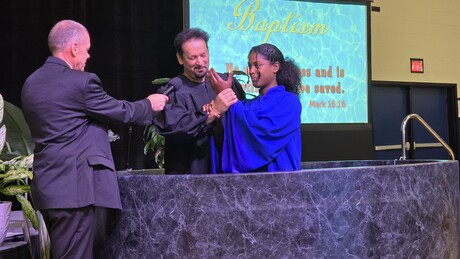My oldest son, Zac, was curious to discover why some of his friends have walked away from the Adventist Church. Recently, he posted the following question on Instagram, wondering if anyone would respond. He asked: “If you are still Adventist, why? If you were raised Adventist, but don’t consider yourself Adventist anymore, why?”
Here are just a few of the candid (and anonymous) responses he received:
“It wasn’t until high school that I really started to understand the whys and seek out God for myself. I feel that if young people had a better understanding of the 'whys' behind the church other than just 'because it’s been this way' or given a cop-out answer. I also feel like if individuals were more real about their faith and the struggles that do come along than maybe people won’t be so quick to leave.”
“I grew up in the church and my parents were super-conservative. ... I’m still an Adventist despite the way I was raised. I have learned to take traditions and the other things with a grain of salt. Though not to be confused with changing the Bible to fit what I want to believe. I have seen not only in my life but the lives of others how having a relationship with Jesus is everything.”
“... I never had a problem with the church, but I’m also not LGBTQ or anything else that the church has a problem with, so I understand how other people feel outcast sometimes. ... I’m still in the church because I believe in God and what He stands for, not necessarily what certain people have said, but that’s also my parent’s influence, telling me to think for myself and my own person.”
“I’m still a part of the church. ... I think people leave the church because of misunderstandings or miscommunication of what they hear in church, which is tough. I think clarification and rationale for 'taboo' topics such as homosexuality, drinking, sex before marriage, drugs, etc., should be talked about more versus having a bad stigma or hearing, ‘If you do any of those things, you are a sinner, therefore God looks down on you.’”
Only one person responded who no longer considers themselves an Adventist. They shared the following painful realities:
- I didn’t experience genuine love from people who claimed to be Christians.
- I found Christians to be very critical and mostly unhappy.
- They teach and preach what they don’t live out (hypocrites).
- I never felt I was part of my church.
While Zac’s Instagram responses cannot be considered formal research data, they anecdotaly reflect some common themes noted in recent Barna Group research. Their studies show that when millennials rank positive contributors to their faith journey, “church” does not even make it into the top 10 (see barna.com/research/5-reasons-millennials-stay-connected-to-church/). Instead, the most common factors of spiritual growth, as identified by millennials themselves, are:
- Prayer;
- Family and friends;
- The Bible;
- Having children;
- Their relationship with Jesus.
May God help us to be creative and intentional about remaining connected and positively engaged with our millennials in ways that are personal, loving and authentic. Miracles happen when we allow God to make us a channel of His love through caring connections!








